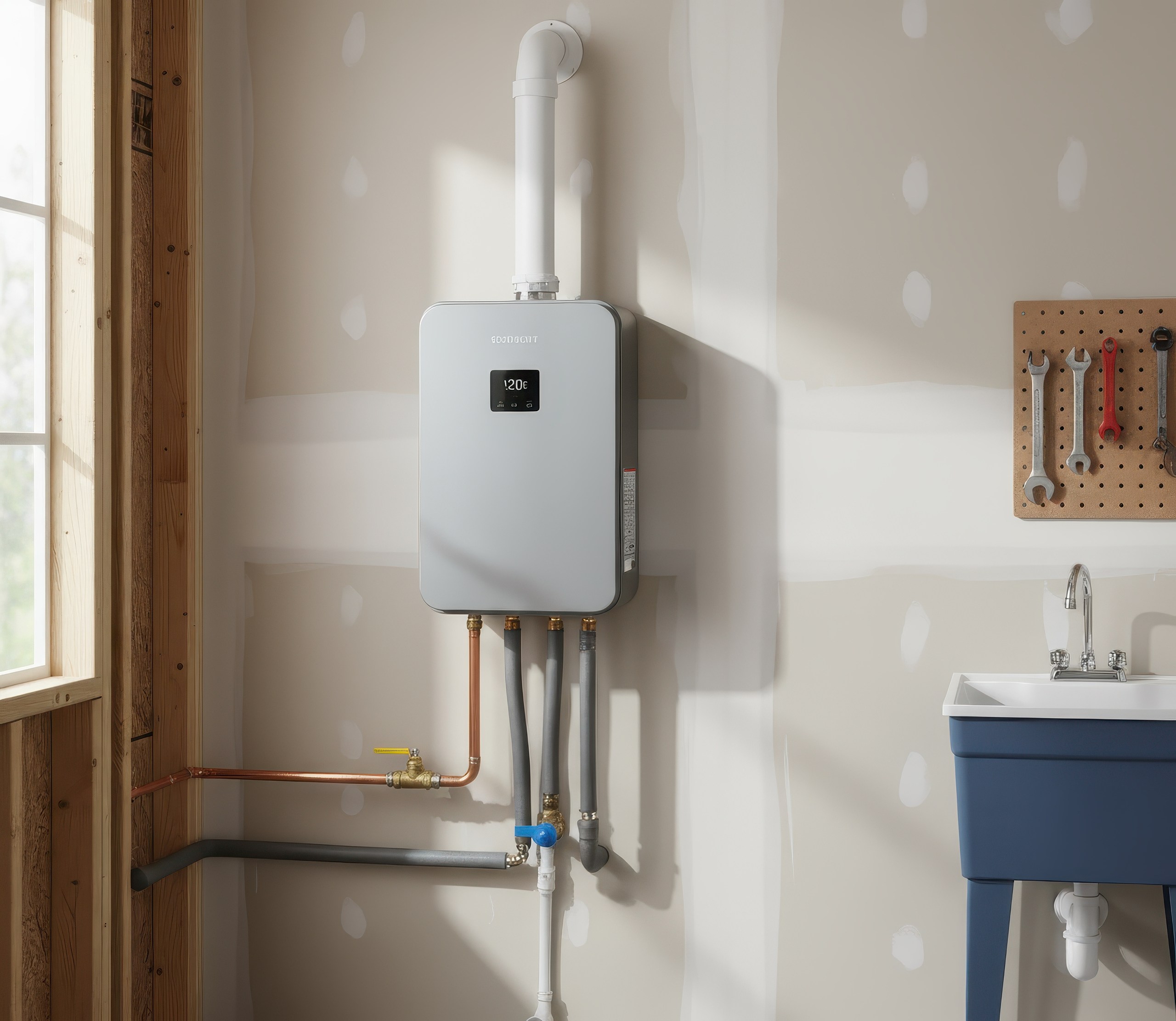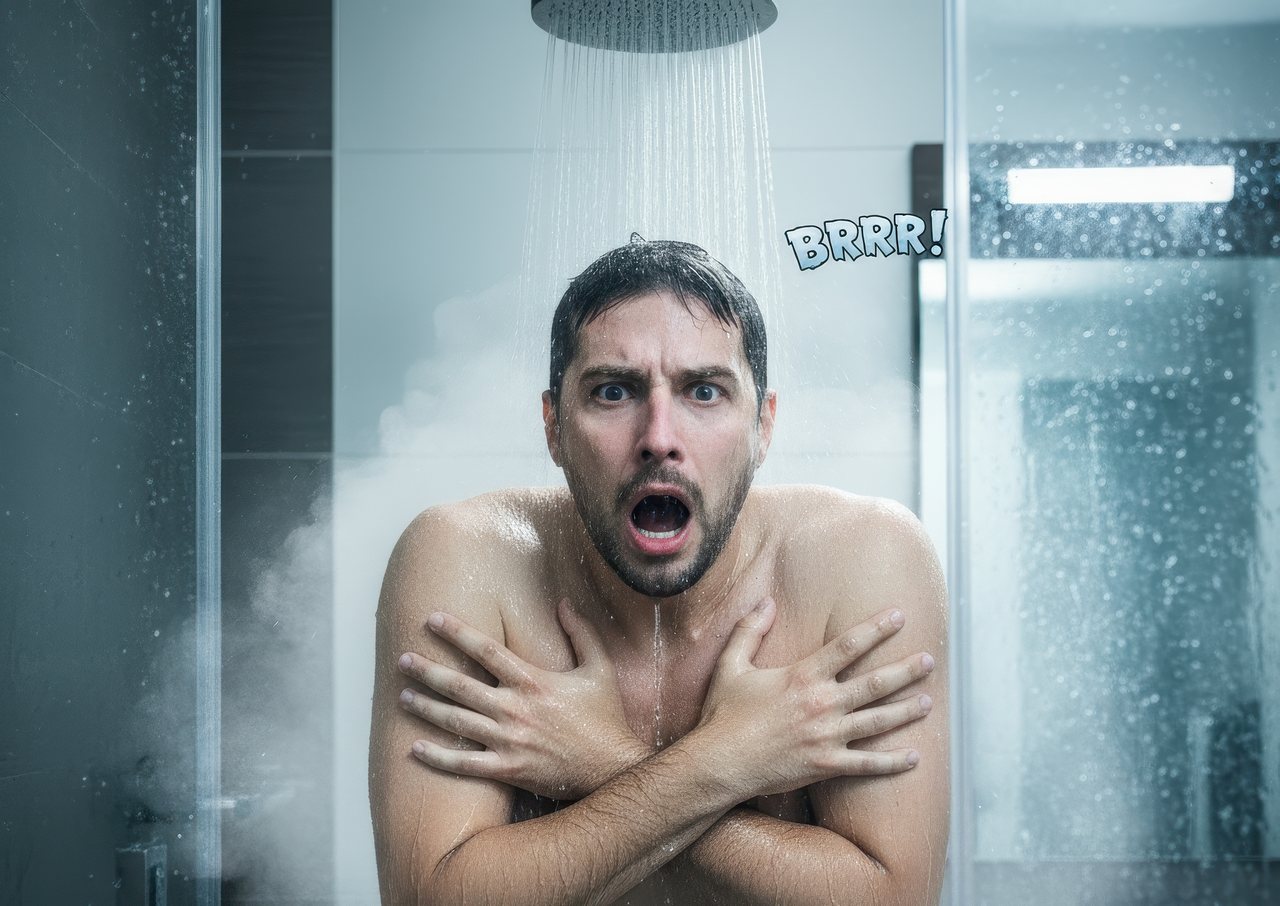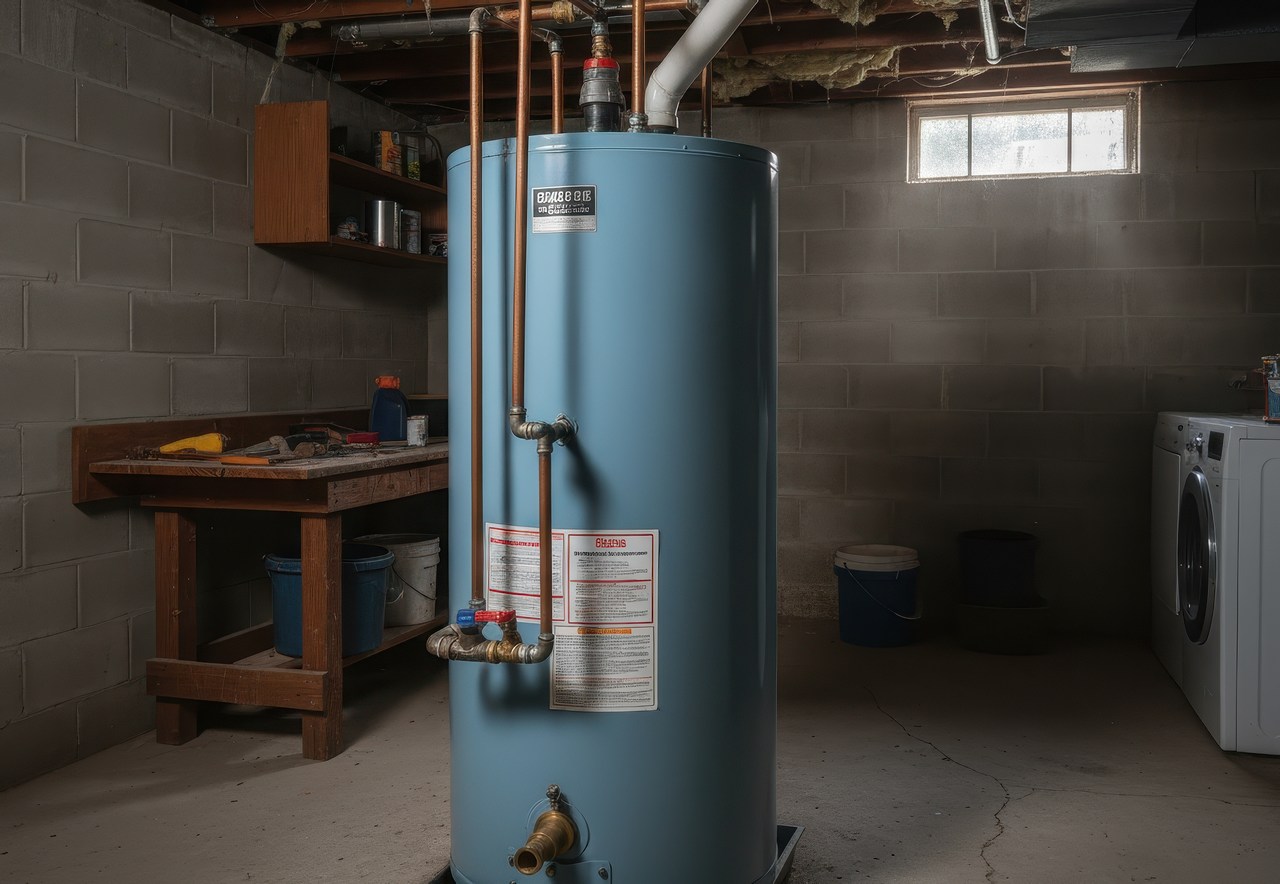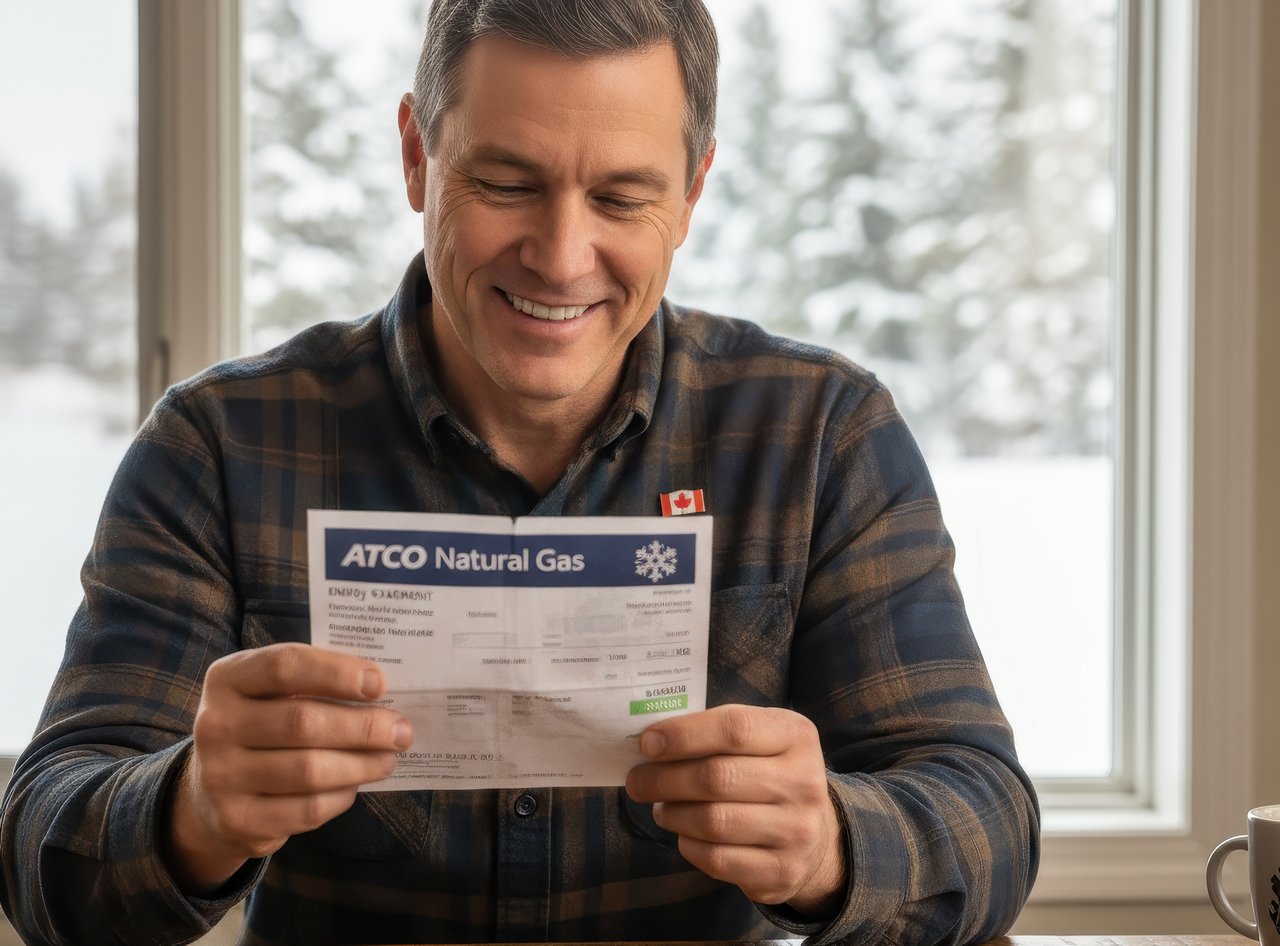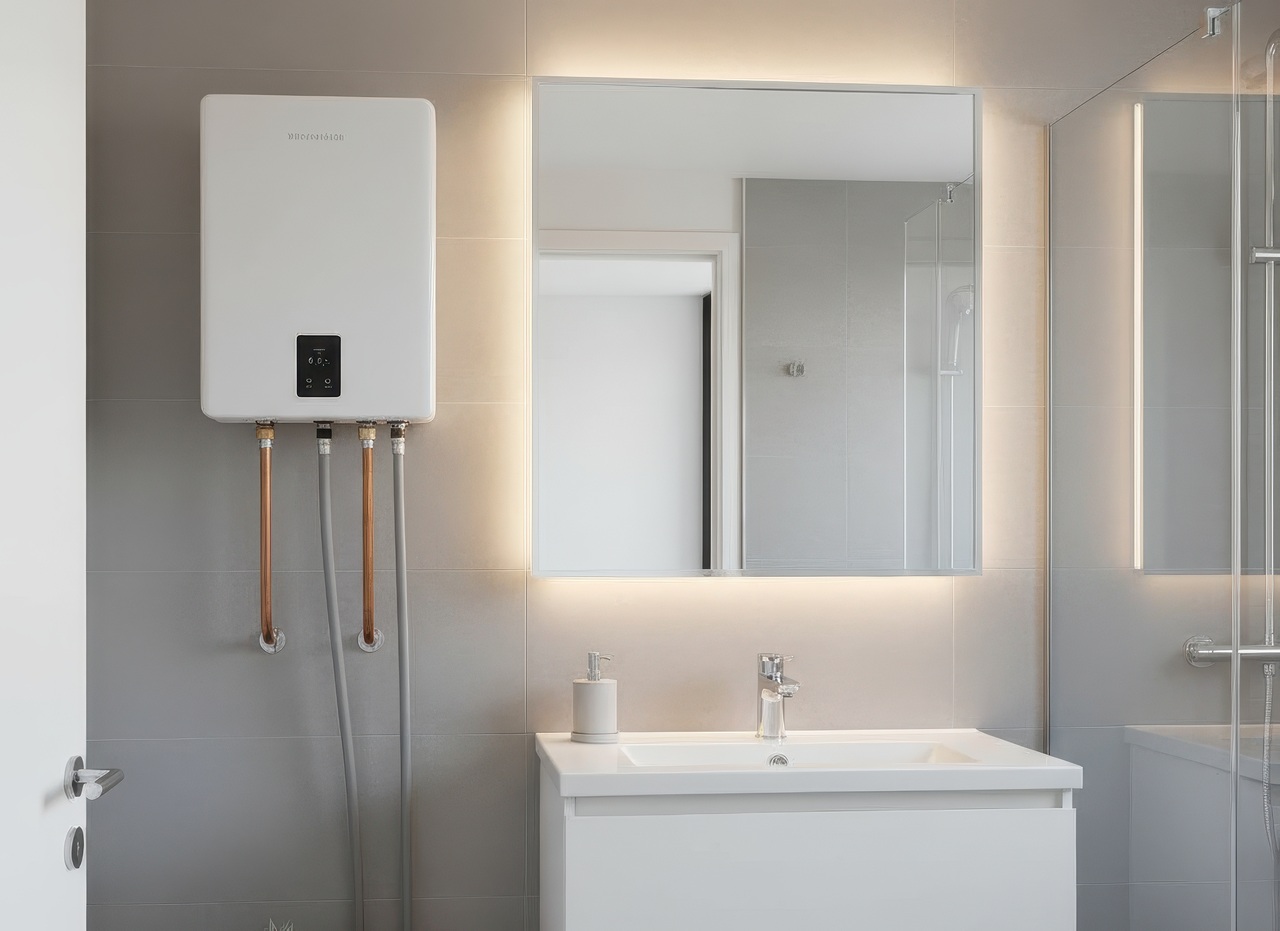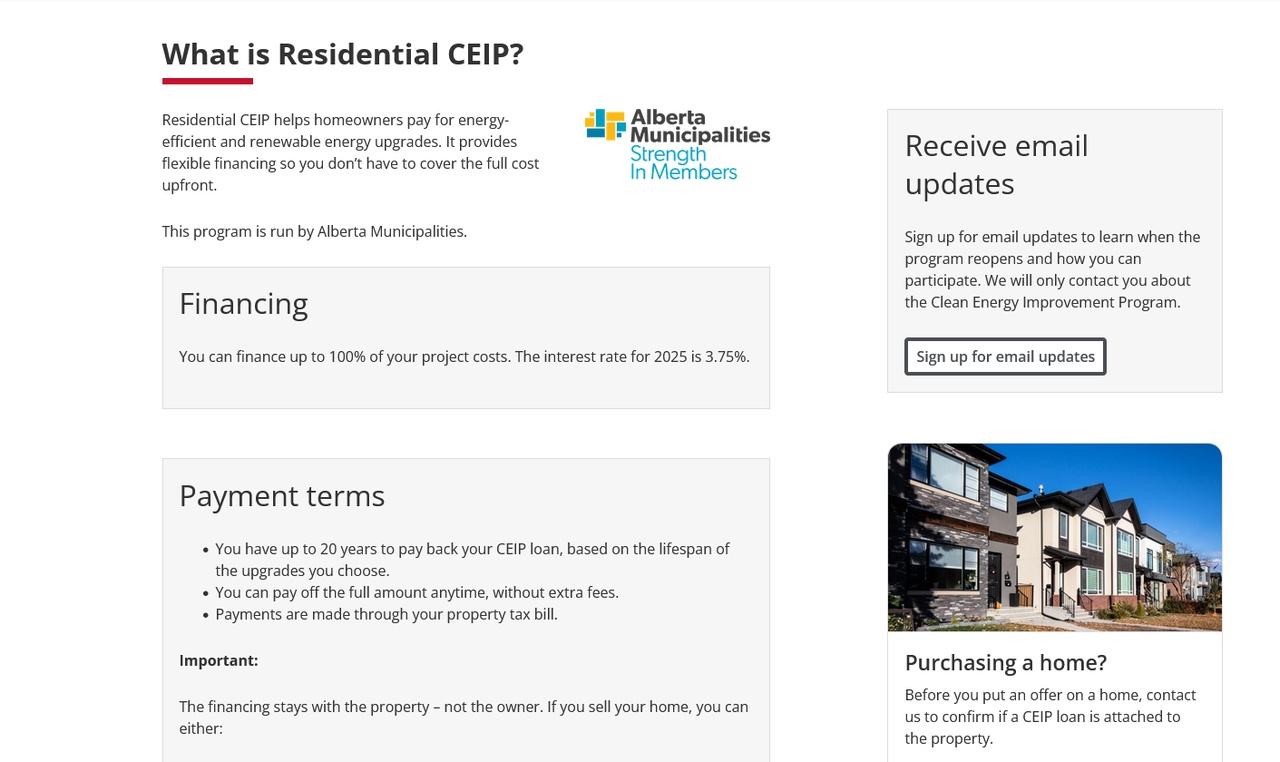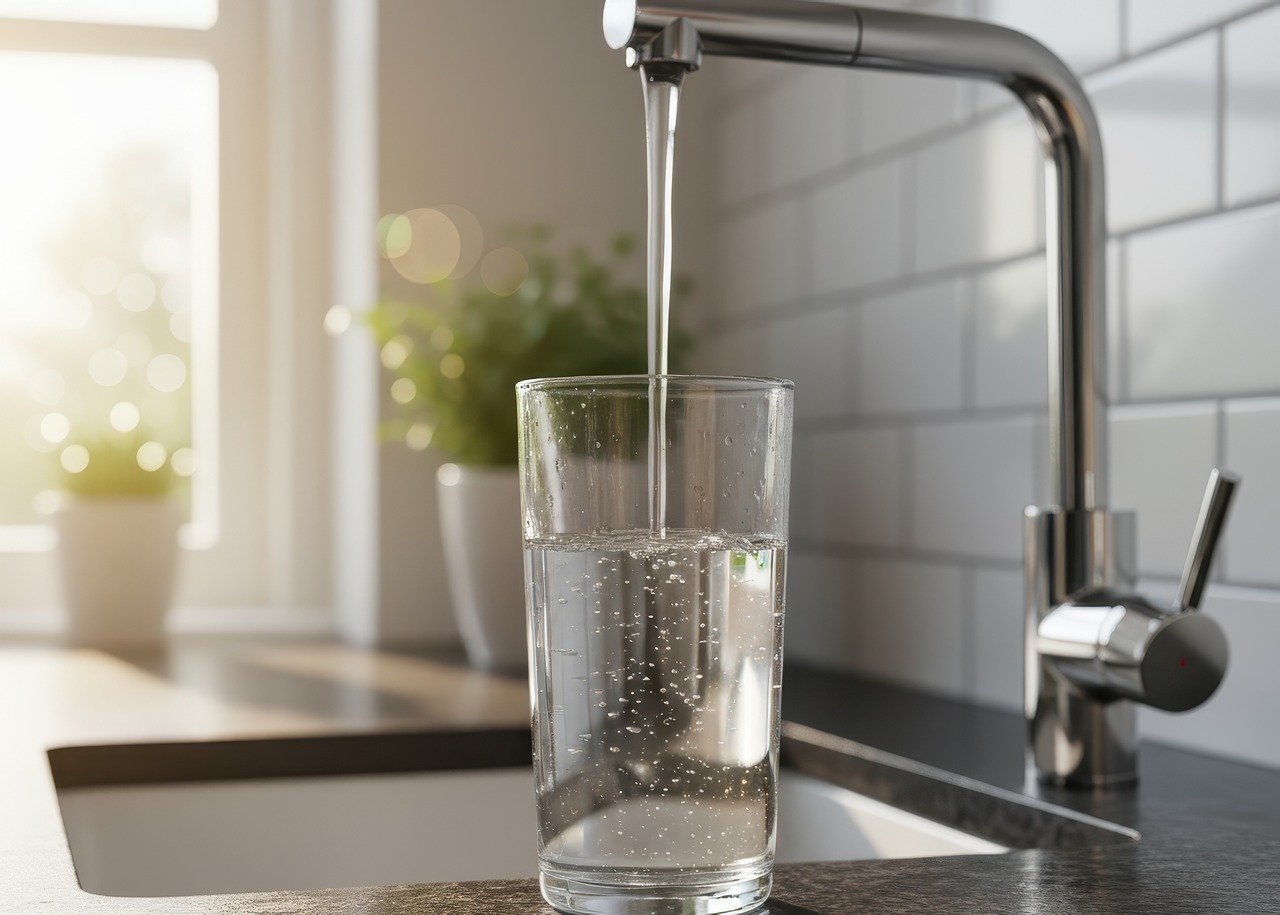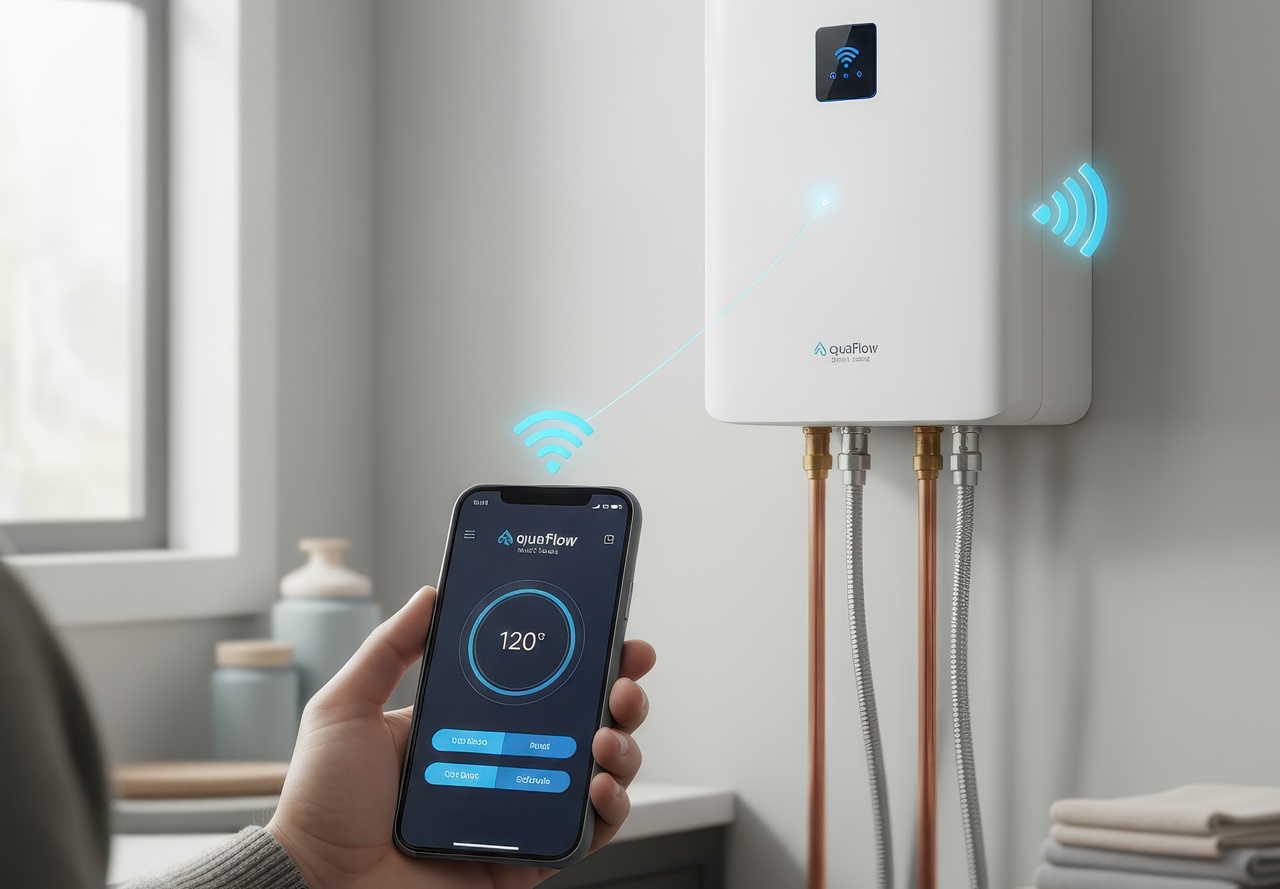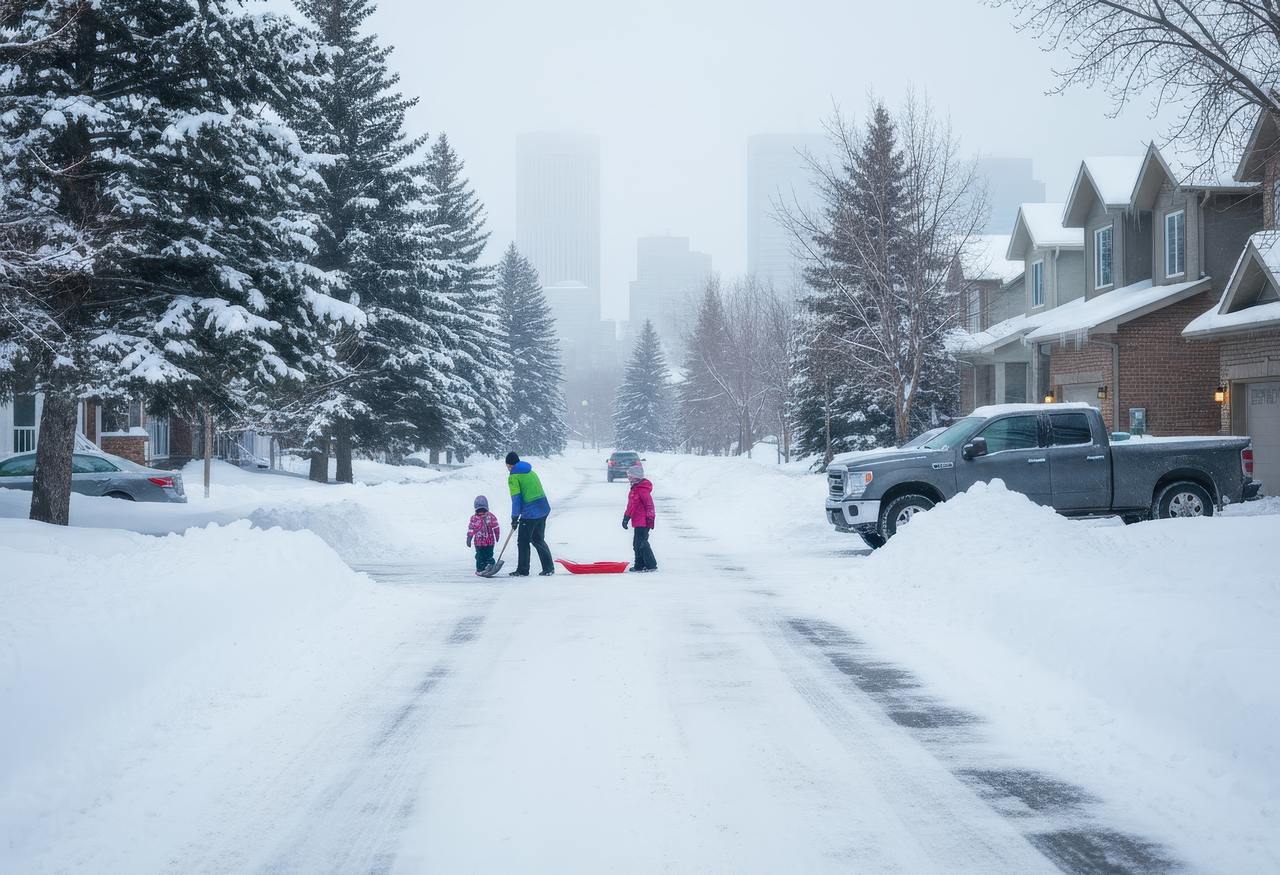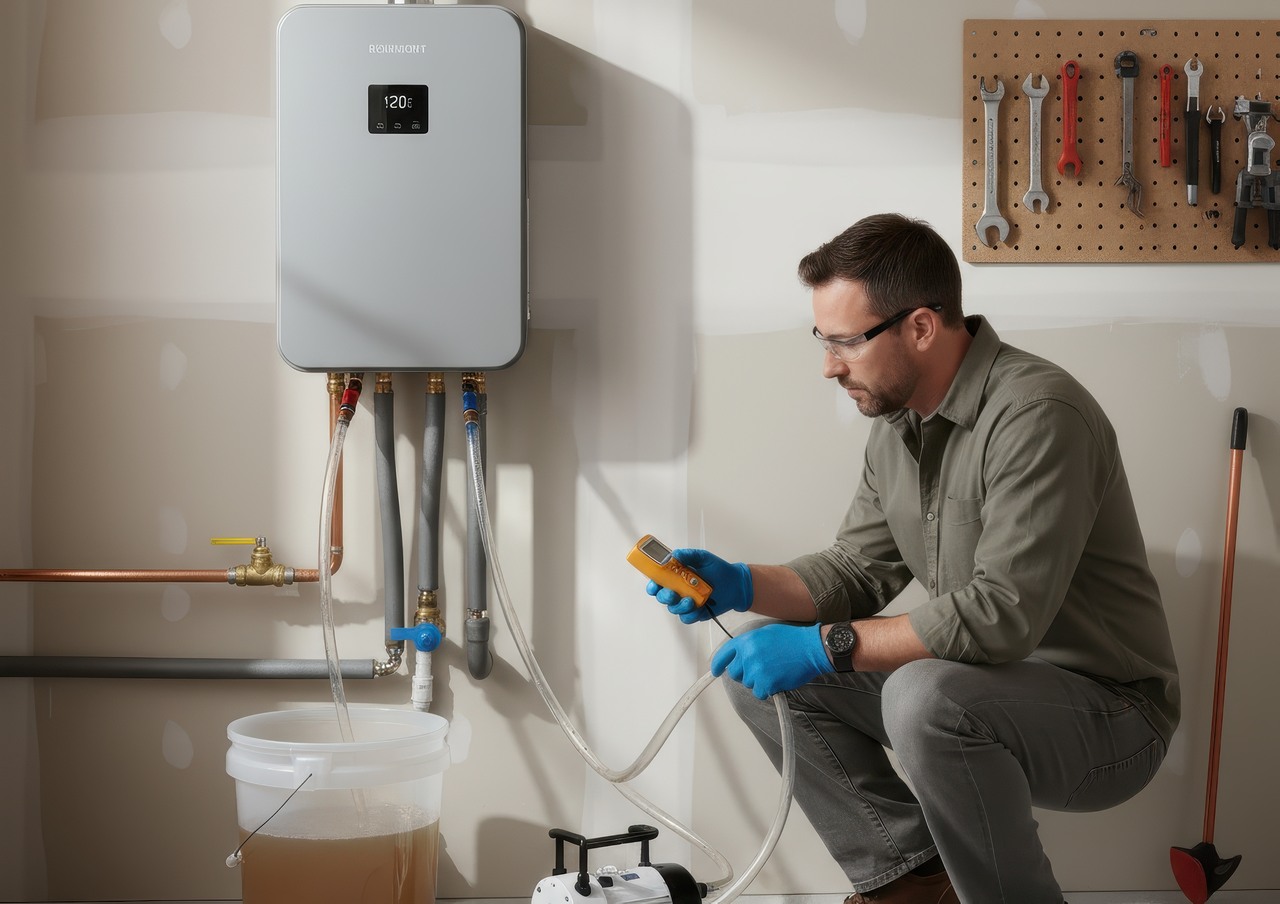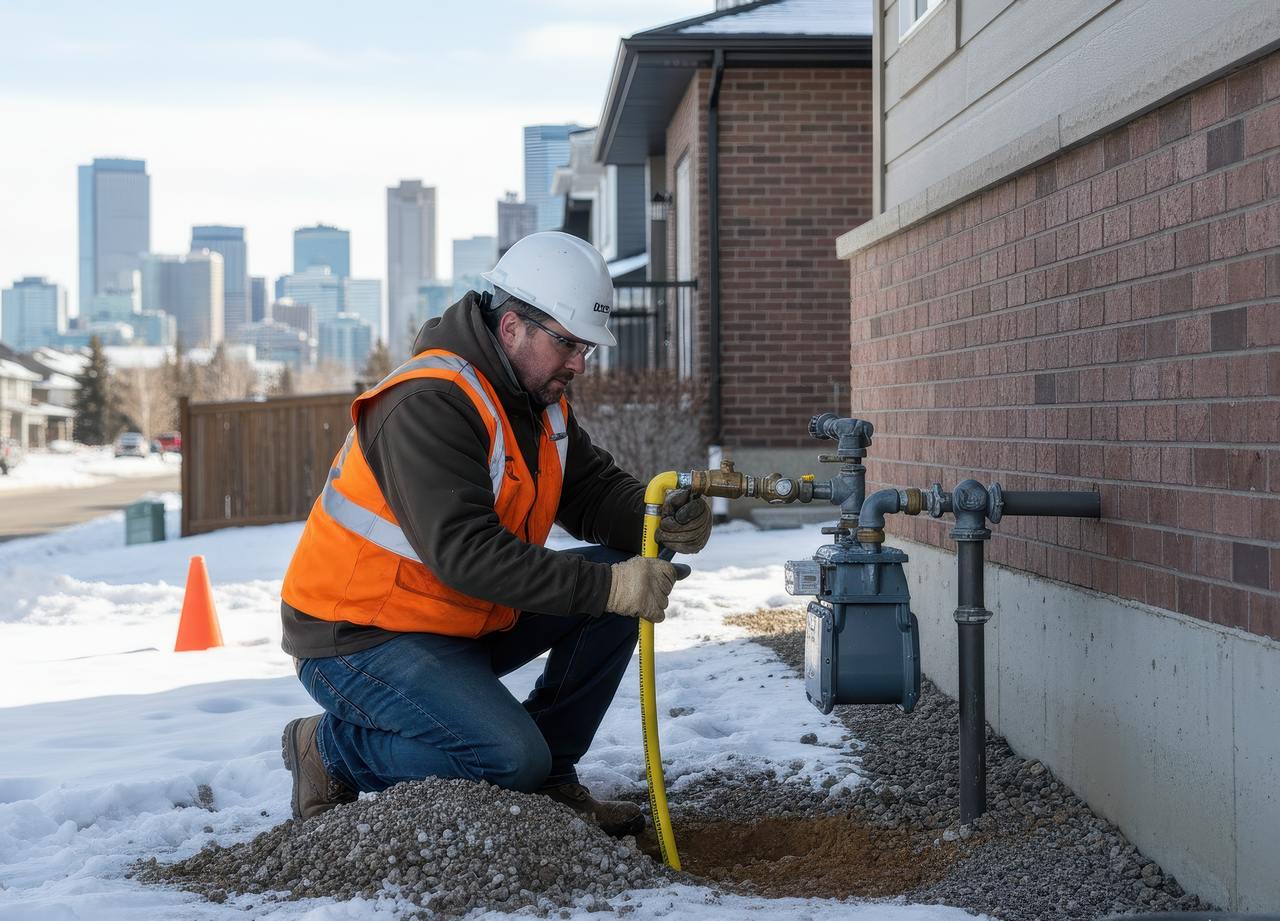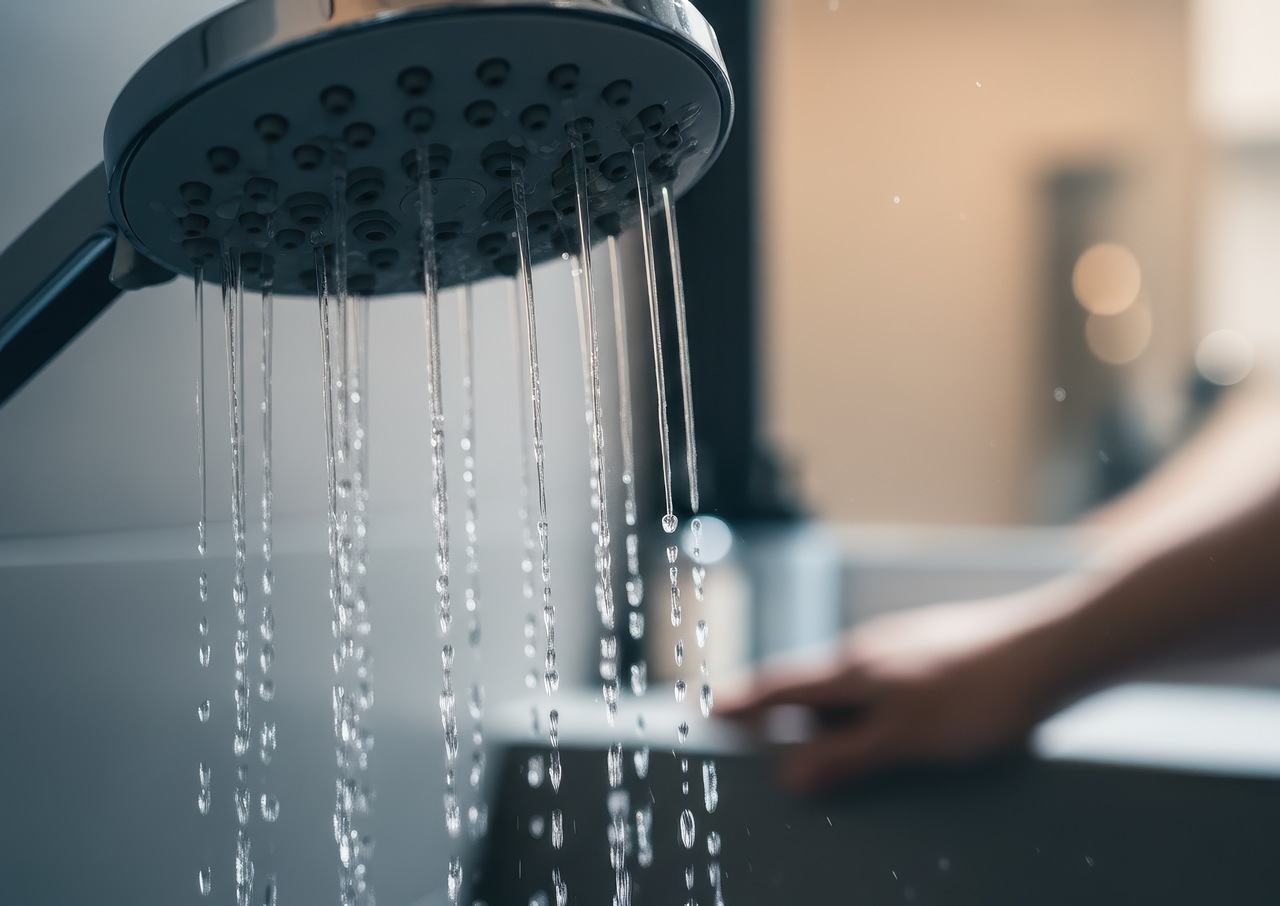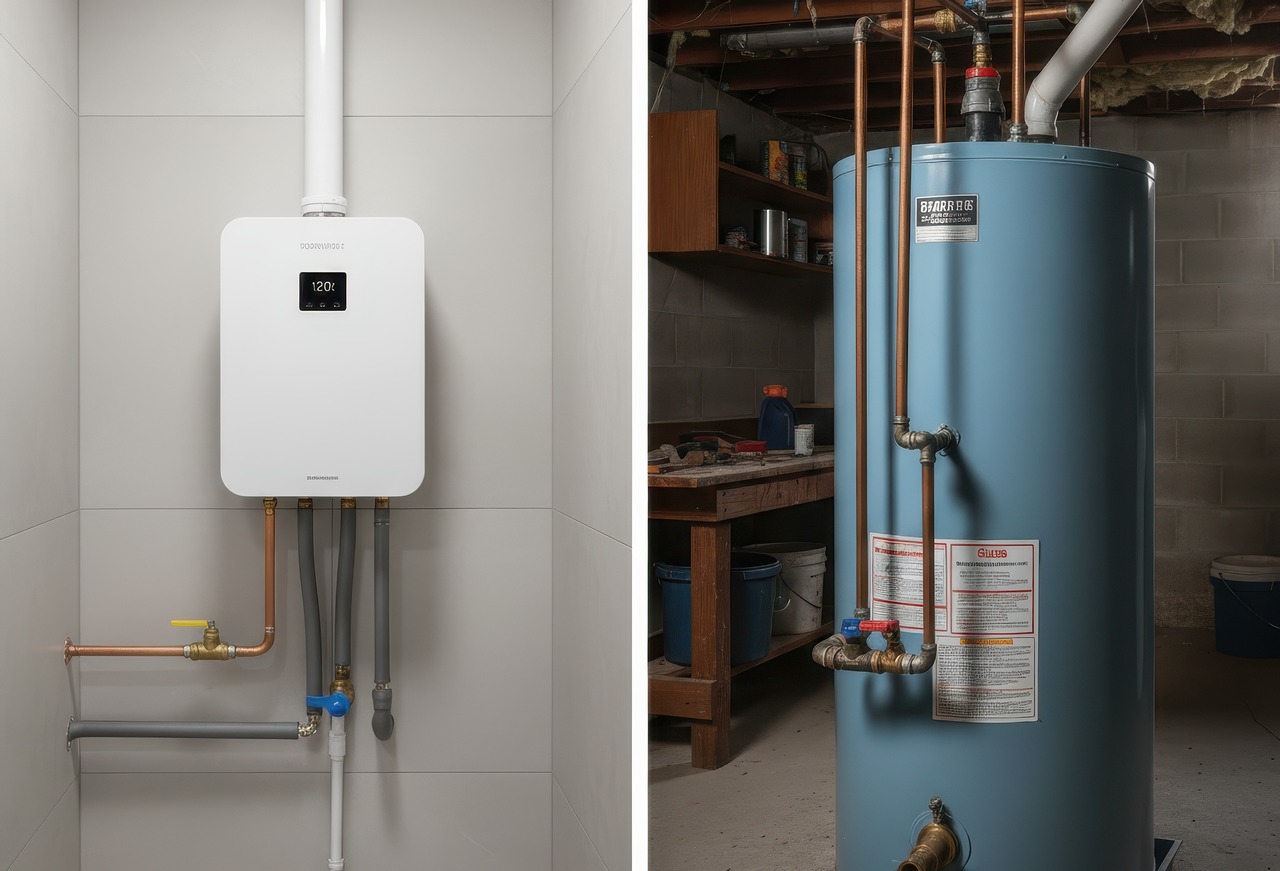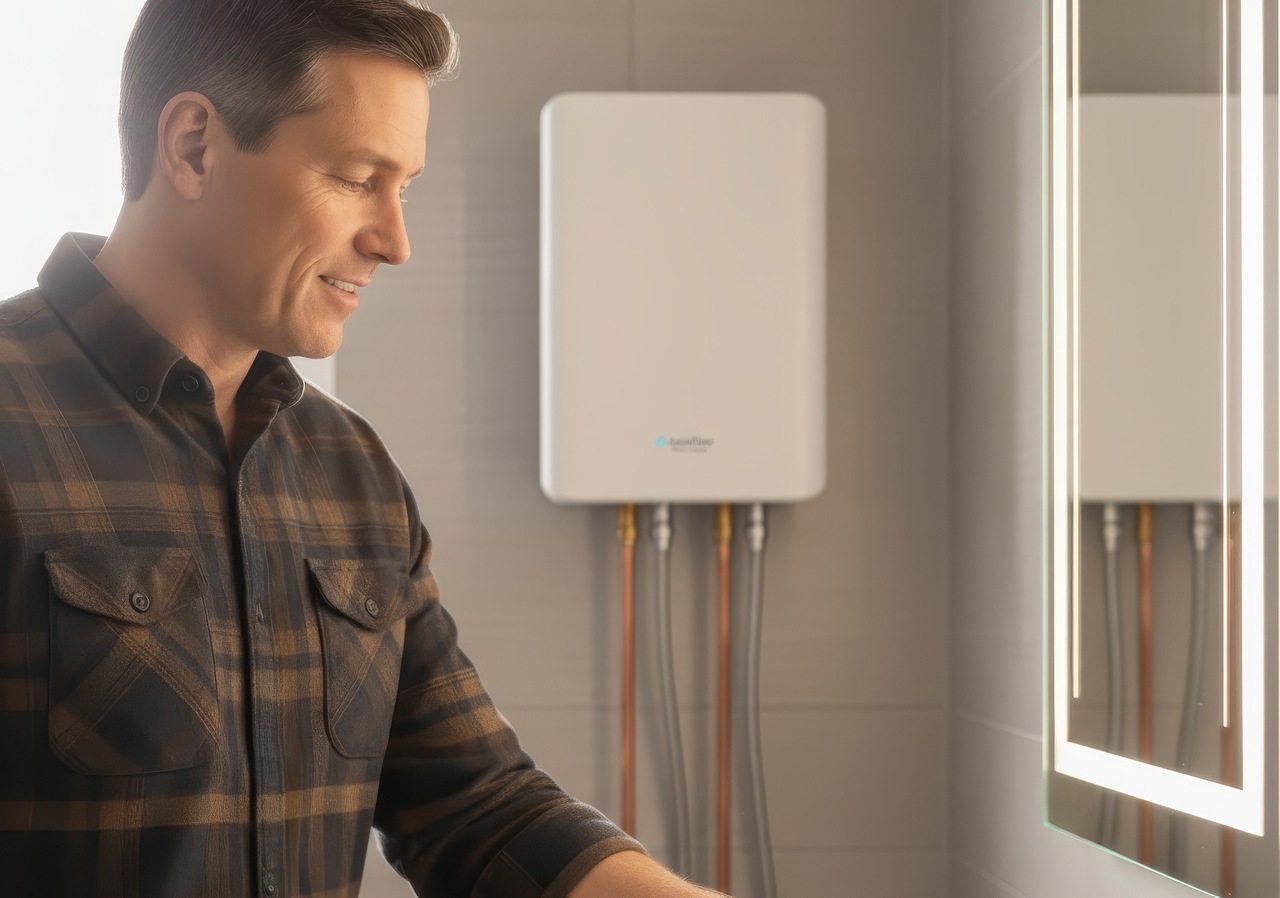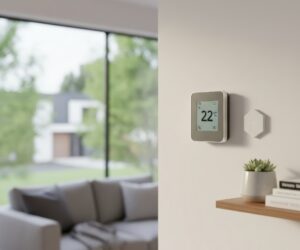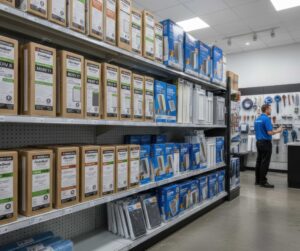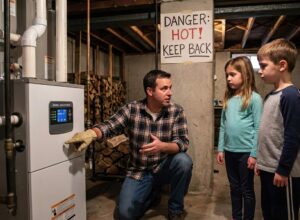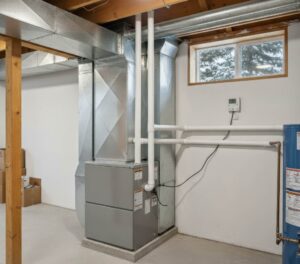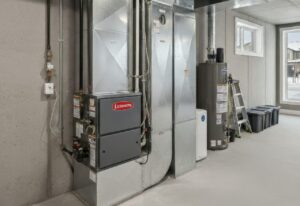Calgary homes have traditionally heated water using natural gas-powered storage tank heaters. That’s changing, with the growing popularity of tankless water heaters, which heat water on demand reliably, affordably, and efficiently.
With our extra-cold winters and water hardness, steady and affordable home heating and hot water supply can be challenging in Calgary but new, high-efficiency tankless heater units can help.
Let’s weigh up the pros and cons of tankless water heaters in Calgary, so you can decide if making the switch is right for you…
Tankless Water Heater Pros and Cons: Quick Summary
Tankless water heaters are growing in popularity in Calgary because they provide an endless hot water supply, are more energy-efficient than tank systems, have a longer lifespan, and can save space. Tankless water heater negatives include a higher upfront cost, potential installation complexities, lower output rates, and the requirement for more regular maintenance.
We go into detail below but here’s an at-a-glance view of the main pros and cons of tankless and tank-based hot water systems to help with your decision:
|
FEATURE |
TANKLESS WATER HEATER |
TANK_BASED SYSTEM |
|
Hot Water Supply |
✅ Endless hot water on demand |
⚠️ Limited to tank capacity (40–60 gallons is typical) |
|
Energy Efficiency |
✅ High – heats water only when needed (no standby loss) |
❌ Lower – energy wasted keeping water hot all day |
|
Operating Cost |
✅ Can reduce gas use 10–30% over time |
⚠️ Generally higher monthly energy use |
|
Upfront Cost (Installed) |
❌ Higher – $4,500–$8,000 in Calgary |
✅ Lower – $1,800–$3,000 in Calgary |
|
Lifespan |
✅ 20+ years with maintenance |
⚠️ 8–12 years average |
|
Space Requirements |
✅ Compact, wall-mounted |
❌ Bulky tank takes floor space |
|
Cold Weather Performance |
⚠️ Needs proper sizing for Calgary’s cold inlet temps |
✅ Consistent – stores pre-heated water |
|
Maintenance Needs |
⚠️ Annual descaling recommended |
✅ Minimal – occasional flushing |
|
Environmental Impact |
✅ Lower emissions and energy waste |
⚠️ Higher carbon footprint |
|
Installation Complexity |
❌ May need gas line or venting upgrades |
✅ Simple replacement or retrofit |
|
Freeze Risk |
⚠️ Outdoor units need freeze protection |
✅ Minimal (stored indoors) |
MAKE THE RIGHT HEATING & COOLING DECISIONS…
For over two decades, Alberta Mountain Air has helped Calgarians solve heating and cooling problems and maintain ideal comfort levels. Get in touch online for a quote.
What is a Tankless Water Heater?
Tankless water heaters are becoming more popular in Calgary. These compact appliances heat water on demand rather than storing hot water in a large tank.
We will get into the strengths and weaknesses of tankless water heaters soon but the major benefit is that, theoretically, you never run out of hot water. That’s music to the ears of anyone who’s ever had the shower turn ice cold on a January morning because the hot water tank is empty!
Main Differences Between Tankless and Conventional Water Heaters
Tankless systems heat water instantaneously as you need it. When the hot water tap is turned on, cold water is piped to the water heater and heated by a gas burner or an electric element. No water is stored, so no large water tank is needed. Only the amount of water required is heated, limiting the wastage of energy compared to conventional water heaters—a key difference.
Tankless water heaters are also generally more efficient and their compact, space-saving designs are another major attraction.
Conventional tank-based water heating systems store a large volume of water (generally 40–100 gallons) in an insulated tank, often located in basements, utility rooms or garages. Most households of 4-6 people in Calgary have a 40, 50, 60 or 80-gallon tank.
When hot water is used, the tank refills with cold water, which is then reheated to maintain the set temperature.
In Alberta, most homes still use natural gas-powered storage-tank water heaters, as natural gas is more affordable than electricity. Tank-based systems are popular because of their reliability in cold weather, relatively low upfront costs, and simple installation based on existing infrastructure in Calgary homes.
However, tankless gas water heaters are becoming increasingly common, especially in newer homes. In rural areas without access to natural gas lines, propane may be used as an alternative fuel source.
The Main Pros of Tankless Water Heaters in Calgary
Calgary homeowners switch to tankless water heaters because of the following benefits…
Endless Hot Water Supply
Do family members enjoy taking long, hot showers in the winter?
Such high demand for water can be problematic with a tank system with a limited hot water supply. With a tankless water heater, you never run out because the water is heated instantly as you need it. That means no more waiting for a shower for the tank water to heat up!
Energy Efficiency
Did you know that standby power consumption can account for 5 to 10 percent of a household’s total electricity bill in Canada?
On-demand heating means that less energy is lost by a water heater while keeping stored water hot, even when no hot water is needed.
The tank’s insulation reduces but doesn’t eliminate heat loss. Heat still escapes through the tank walls (especially in older or poorly insulated units), hot water pipes running from the tank, and from warm air escaping from the flue or vent, in gas models.
Because tankless models heat water as you need it, efficiency improves. Reliable estimates suggest that Energy Star-certified tankless models use 30 percent less energy, on average, than a storage tank type.
Switching to tankless will translate to lower monthly natural gas or electricity bills—a welcome benefit for Calgary homeowners as energy costs rise.
Space-Saving Design
Live in a small condo or studio apartment? Tankless water heaters are ideal for limited living spaces because of their compact design. All you need is a small unit fitted to the bathroom wall—no separate area for a large water tank.
This can free up much-needed space in a utility room or elsewhere in an apartment or simplify heating water in small homes without large basements.
Longer Lifespan
There’s more good financial news for those who switch to a tankless water heater: they last longer than the average water tank.
The average lifespan for a tankless water heater is 20+ years, with annual flushing and maintenance. This compares with 10–15 years for tank units. So, going tankless is a long-term investment for homeowners.
Government Rebates/Incentive Programs Available
Federal, provincial, and municipal rebate and incentive programs may be available to help you meet the costs of upgrading to an energy-efficient tankless water heating system.
These programs vary over time, and most have expiration dates, so you’ll need to check with your Calgary HVAC contractor or plumber to see what’s available currently.
For instance, the City of Calgary currently offers the Alberta Municipalities Clean Energy Improvement Program. This helps eligible homeowners finance the entire cost of upgrading to a tankless water heater at a low interest rate (payable through the property tax bill).
Cleaner water
A side-benefit of tankless water heaters is that the water does not contain any impurities, as it can do from an aging tank.
Old storage water tanks may add deposits of rust and scale from their inner walls. This can contaminate the water—a problem you won’t ever have with a tankless system.
Environmental Benefits
The reduced energy usage of tankless water heaters results in a lower carbon footprint for homes.
While this may not be a major consideration for all homeowners, the sustainability of the solution can influence buying decisions for those who want to remain as eco-friendly as possible.
Smart Features
Modern tankless water heaters often embrace the latest WiFi technology so that you can adjust settings from your phone app. You may also be able to use voice commands to control settings through Alexa and Google Home, while also generating hot water usage reports.
The Main Negatives of Tankless Water Heaters in Calgary
There are a few negatives of tankless water heaters to bear in mind, too…
Higher Upfront Cost
The “elephant in the room” is the higher upfront cost of tankless water heaters. Not only do the units cost more upfront to purchase than water tank systems but there may also be extra installation costs, especially when retrofitting older homes.
Here’s a quick basic cost comparison between tankless and tank-based hot water systems (prices quoted include installation):
|
Property Size / Household Size |
Typical Tank-Based System (40 to 60-gallon tank) |
Typical Tankless System (whole-home) |
|
Small property / 1-2 people (e.g., small house, condo) |
$1,800 – $2,800 |
$4,600 – $6,000 |
|
Medium property / 3-4 people (average family home) |
$2,400 – $3,200 |
$5,500 – $8,800 |
|
Large property with multiple bathrooms or high hot-water demand |
$3,000 – $4,000+ (larger tanks or multiple tanks, plus upgraded plumbing/venting) |
$7,000 – $10,000+ (higher capacity tankless, possibly more complex installation) |
Bear in mind that the higher upfront costs of tankless systems can be offset not only by rebates and incentive programs but also by lower monthly bills from the additional efficiency.
Performance in Cold Climates
Some homeowners have reservations about the performance of tankless water heaters in extremely cold climates, like Alberta.
The temperature of the incoming water affects the heating requirements, flow rate, and efficiency, and this may be a concern in Calgary’s icy winters.
However, most modern tankless water heating systems sold in Calgary are built to cope with the low temperatures and will work fine if attention is paid to sizing during the selection process.
Units should be rated for cold-climate performance with a higher BTU output (typically 180,000–199,000 BTU for whole-home systems), with built-in freeze protection heaters. They should also be professionally installed and regularly maintained.
The golden rule is to seek professional assistance before, during, and after you switch to tankless.
Maintenance and Hard Water Issues
Calgary’s water comes from the Bow and Elbow Rivers, which are high in minerals from limestone and other rock formations upstream in the Rockies. This makes it wonderfully clean and fresh but also high in minerals. This “hard water” can cause scale to build up in plumbing systems and household appliances if not addressed.
Tankless water heaters need descaling and flushing annually—essential servicing that will help maintain performance and efficiency, while extending the life of your system.
Potential Power or Gas Line Upgrades
Before installation, tankless units may require gas line upgrades, venting/water pipe additions or electrical capacity checks, depending on the fuel system you will use.
Check this with an HVAC or plumbing professional because it could add significantly to the upfront costs of the system.
Output Rates
The output rate of a tankless heater is lower than with tank-based systems—so, although you will never run out of hot water, the shower performance may be impacted.
However, if the right unit is installed, most homeowners will only run into problems if multiple appliances are running simultaneously, such as the dishwasher and washing machine, as well as the shower.
Homes that require extra hot water capacity may combat the higher demand by installing more than one water heater.
Is a Tankless Water Heater Right for Your Calgary Home?
Both tankless and tank-based water systems have their pros and cons for Calgary homes. The best option for your home will depend on:
- Your installation budget (Can you meet the higher upfront costs of tankless heaters?)
- Available space (Do you have the space for a tank-based system?)
- The existing power, plumbing, and venting infrastructure in your home (Will extensive adjustments be required for a tankless system?)
- Hot water usage in your home (Do you have a large household or high demand that uses most of the hot water in the tank most days?)
- Willingness to maintain the system (Will you book annual maintenance for your tankless heater?)
The best way to make the right decision is to speak to one of our heating professionals for advice and recommendations on how best to heat your home’s water supply.
Generally, we recommend tankless water heaters for Calgary households with:
- A few occupants with moderate hot water demands.
- An existing modern plumbing, venting, and power infrastructure (no expensive installation processes required).
- Limited space.
- High energy bills that the homeowner wants to reduce.
FAQs
Tankless water heaters are generally best for smaller homes, households with a few occupants, and modern homes with suitable plumbing, venting, and power infrastructure. A tank-based system may be best if you have a larger family and an older-style home, where space is not a factor.
Tankless water heaters usually cost between $4,600 and $10,000+, depending on factors like home size, number of occupants, installation complexity, etc. Around $5,000 to $7,000 is typical for a moderate-sized home.
Cold-climate-rated tankless water heaters that are properly sized with a suitable BTU rating work fine in cold climates like Calgary, provided they are installed and maintained professionally.
You should flush your tankless water heater once a year—more often than a tank-based system. This will prevent the build-up of scale (calcium and magnesium) inside the heat exchanger, which can reduce heating efficiency, restrict water flow, and damage the unit over time.
For households that use less than 40 gallons of water per day, a tankless water heater can cut gas bills by up to 25 percent. This figure drops to 10-15 percent for households that use 80 gallons or more per day.
No, the only time that a correctly sized unit will “run out” of hot water is if it malfunctions or the heat exchanger fails. Otherwise, the hot water supply is unlimited.
Get a Tankless Water Heater in Calgary…
Our experienced, local HVAC pros can help Calgary homeowners install and maintain the right water heating unit(s) for your home’s conditions.
All HVAC professionals at Alberta Mountain Air are SAIT-certified and can help you make the right heating and cooling decisions. Contact us online.
